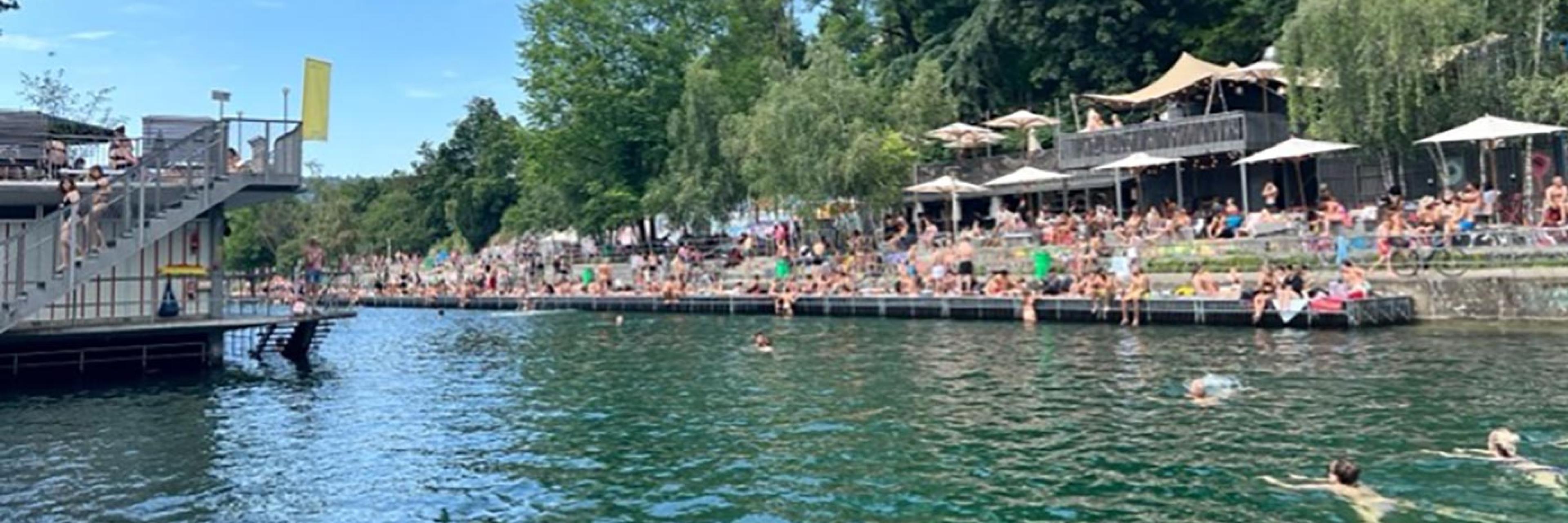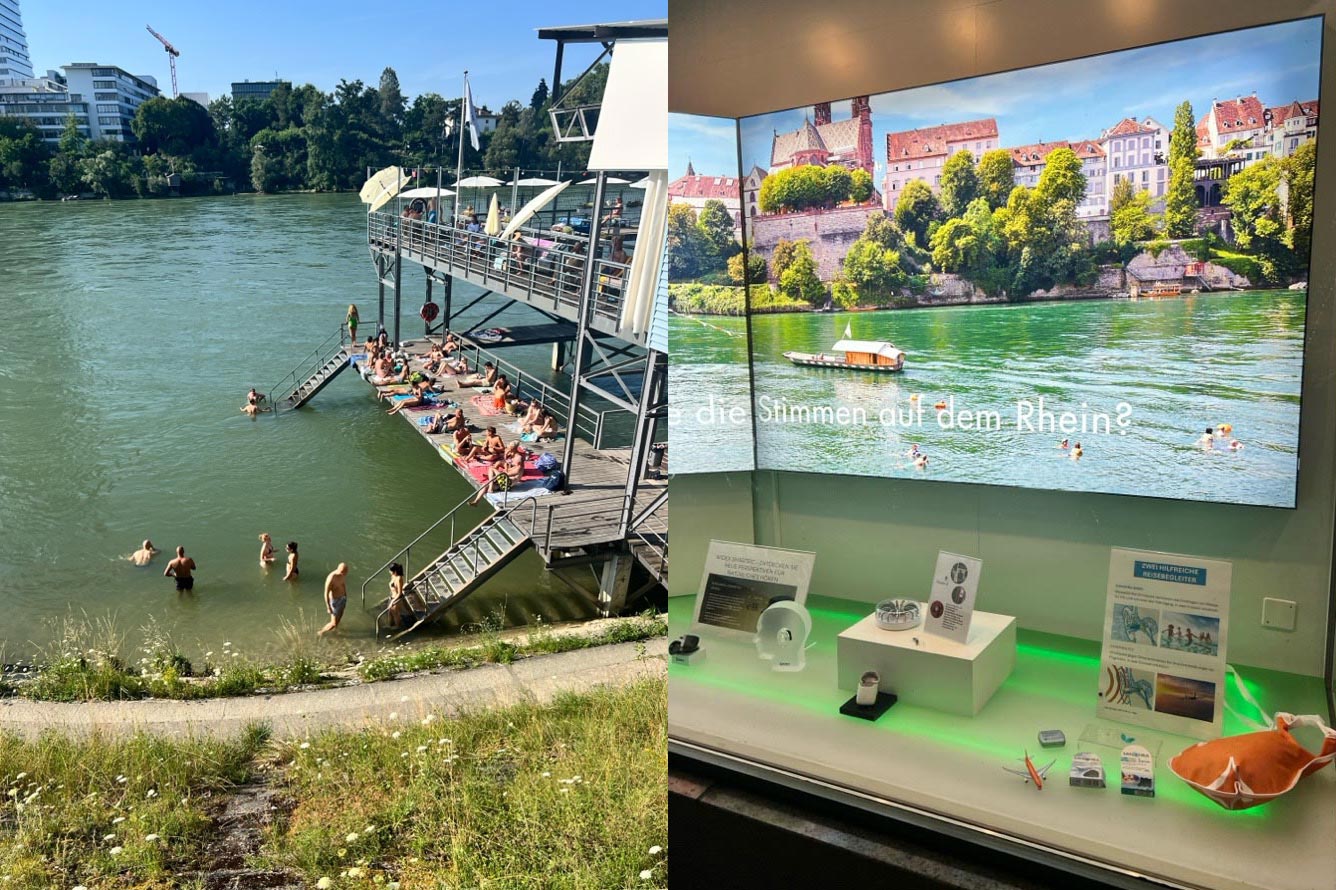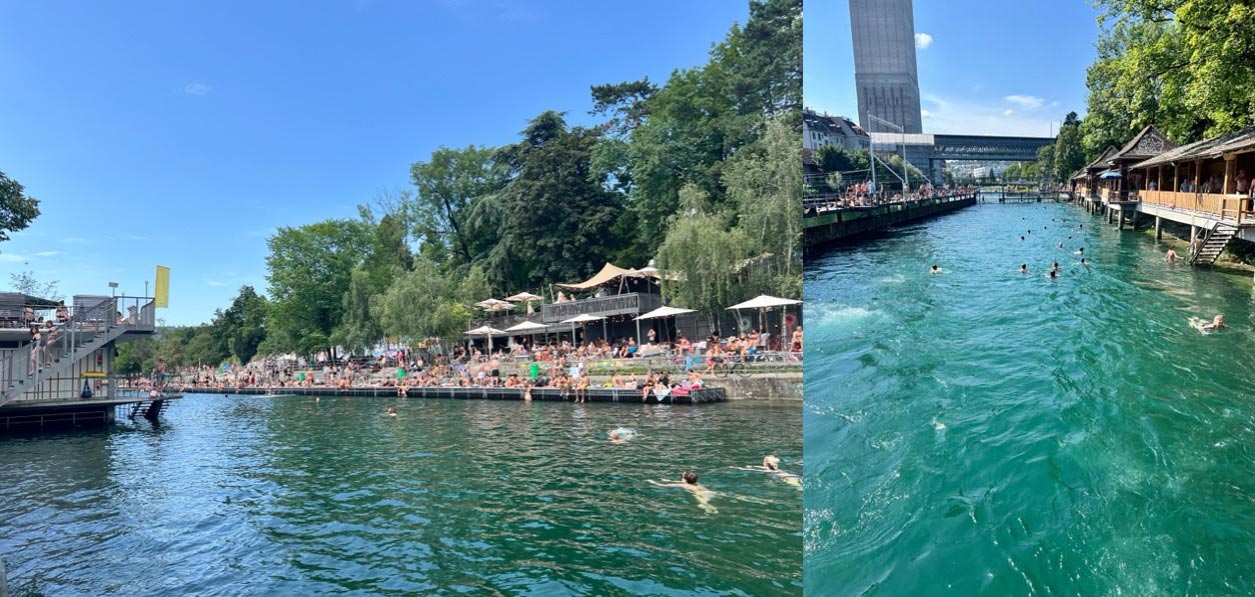
Urban River Bathing/Swimming: Management Practices and Challenges, examples of European Cities
Historically, humans learned to swim in natural bodies of water, and many ancient civilizations developed along waterways. However, with the advent of industrialization and the consequent water pollution, combined with the democratization of public swimming pools, river swimming was officially prohibited in major European cities during the 20th century (e.g., Paris banned swimming in the Seine River in 1923; Berlin did the same in the Spree River in 1925).
Abstract
In recent years, a movement enabling urban river bathing/swimming has emerged in Europe, North America and Australia, driven by a series of river restoration projects that have generally improved river water quality and transformed riverfronts into multi-functional green/blue spaces. Notably, the EU's Bathing Water Directive (2006/7/EC) established a legal framework to improve bathing water quality across Europe. A recent example is the swimming competitions held in the Seine River during the Paris Olympics in the summer of 2024. In the aftermath of the COVID-19 pandemic, there has been a growing demand for natural interactions in urban environments, leading to the rise of grassroot initiatives such as the Swimmable Cities alliance, established in 2024, which advocates for the reclamation of rights to swim/bathe in natural waters in worldwide cities. On the other hand, the development of river swimming zones/pools has become a key component of urban regeneration projects (e.g., the Badeschiff in Berlin) and is increasingly integrated into climate change mitigation strategies, particularly to combat the urban heat island effect (e.g., leveraging rivers’ cooling effect).

Swimming in the River Rhine in Basel, Switzerland: Left: Rheinbad Breite, a swimming pool on the Rhine in Basel; Right: Basel’s "Wickelfisch," a brightly colored, waterproof swim bag.
Through inter- and transdisciplinary collaboration, the studio "Baignades Urbaines" at the Laboratory LabEx IMU at the University of Lyon is studying urban river bathing by addressing four key areas: (1) Safety—ensuring bathing water (microbiological) quality, preventing drowning, and coordinating effective rescue operations; (2) Facilities and Amenities—designing the necessary infrastructure for safe and enjoyable swimming experiences; (3) Urban Attractiveness—enhancing the appeal of cities by integrating river bathing designs with cultural traditions and other recreational activities; and (4) Resource Management—balancing the environmental and/or ecological impacts of river bathing with other urban development policies, i.e., climate change mitigation. Focusing on European context, we will discuss the complex management challenges and opportunities that arise when balancing safety, accessibility, urban development, and environmental sustainability in urban river bathing.
Additionally, we will present our latest empirical findings with examples from European cities renowned for their experimental river swimming pools—Geneva, Bern, Basel, Zurich (Switzerland), Amsterdam (The Netherlands), Copenhagen (Denmark), Berlin (Germany), and Vienna (Austria). These findings are complemented by first-hand insights from a diverse range of stakeholders, i.e., local environmental agencies, tourism officials, river managers, lifeguards, researchers, and NGOs. Our goal is to explore the evolving relationship between humans and nature in urban settings, advocating for a harmonious coexistence between humans and non-humans within urban river corridors.

Left: Flussbad Oberer Letten on the River Limmat upstream, Zurich, Switzerland; Right: Flussbad Unterer Letten on the River Limmat downstream, Zurich, Switzerland.
Team members
Dr. Yixin Cao is the Scientific Coordinator and Researcher at the "Baignades en Rivières Urbaines" studio, LabEx IMU, University of Lyon. Her research focuses on social-ecological systems, water management and governance, river restoration, human-water relationships, and Nature-based Solutions (NbS), with experience in various countries in Europe and Asia.
Dr. Oldrich Navratil is a Senior Lecturer and Researcher in hydrology and fluvial geomorphology at the University of Lyon 2, affiliated with the UMR 5600 CNRS Environnement Ville Société. His research primarily focuses on sediment dynamics in rivers, river morphology, and restoration efforts.
Dr. Nicolas Riviere is a Professor in the Complex Fluids and Transfers Group, part of the Environmental team at INSA Lyon's Department of Mechanical Engineering. His research primarily addresses hydrodynamics in natural and industrial contexts, such as river flooding, urban inundations, and the interaction between flows and obstacles. Dr. Riviere is also co-leader of the "Baignades en Rivières Urbaines" studio at LabEx IMU, in collaboration with Oldrich Navratil from the University of Lyon 2.
Dr Anne Honegger is a Director at CNRS, based at ENS-Lyon. Her work focuses on the interface between humans and nature, particularly in territorial dynamics, environmental planning, and collective water management. She has conducted extensive research on water resource management, its impact on territorial development, and landscape dynamics. Her fieldwork spans regions such as the Rhône Basin, Western Mediterranean, and Mexico.
Dr. Victoria Chiu is a Maître de Conférences (Lecturer) at the Faculty of Law, Université Jean Moulin Lyon 3, specializing in public law. Her teaching and research focus on environmental law, natural resource law, water law, and administrative law. Her research particularly emphasizes comparative water law, where she explores and contrasts national legal frameworks to develop insights beyond individual legal systems.
Célia Maghakian is currently pursuing a PhD focused on urban river drownings, specifically in the Rhône and Saône rivers in Lyon. Her research aims to develop and improve methods for subaquatic victim rescue in these urban waterways.
Read also: Urban bathing in the Rhône and Saône.
River Cities Network presentation series
The River Cities Network presentation series is an online platform for teams in the River Cities Network (RCN) to introduce their river-city case study projects to other members of the network and to an external audience. Teams have approximately 30 minutes to present their projects, after which there will be approximately 30 minutes for discussion. RCN teams that are interested in presenting can contact rcn@iias.nl.